Tens of thousands fleeing Lebanon’s conflict face an uncertain future in Syria
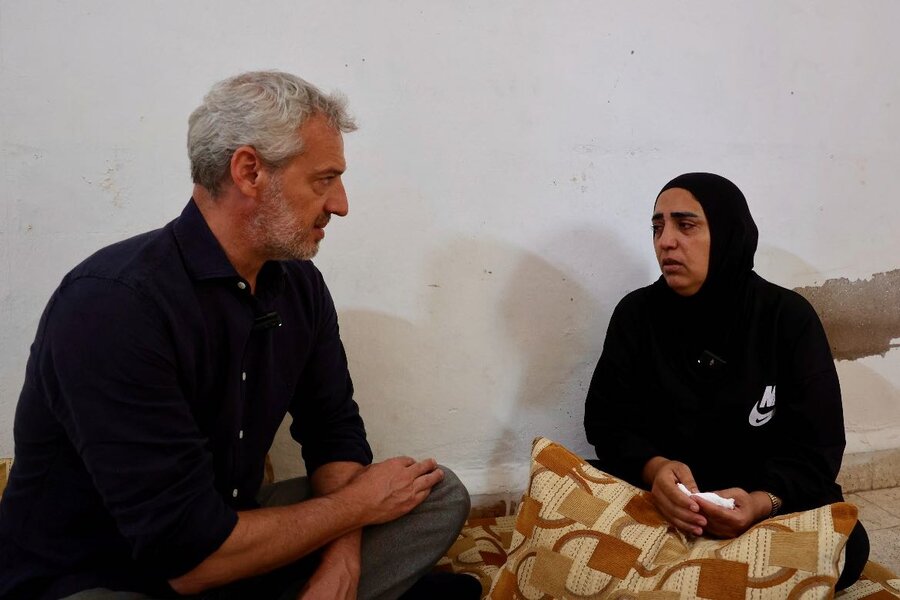
When bombs began falling near their southern Lebanese home in early October, Salma and her husband knew it was time to leave – and return to their native Syria, the war-torn country they had fled a decade ago.
Today, she and her family are packed into her sister’s tiny apartment in the western Syrian town of Tal-Kalakh, after arriving there from nearby Lebanon with just the clothes on their backs.
“We thought coming here would give us some relief from the airstrikes, the bombing, the drones,” says Salma, seated on the bare floor, tears rolling down her face. “But instead we’re trapped in more suffering."
Of the more than 1 million people displaced by Israeli strikes on Lebanon since late September, tens of thousands have sought refuge in neighbouring Syria. Like Salma and her family, many are Syrians – returning home to a country still buffeted by years of unrest, where roughly half the population faces hunger.
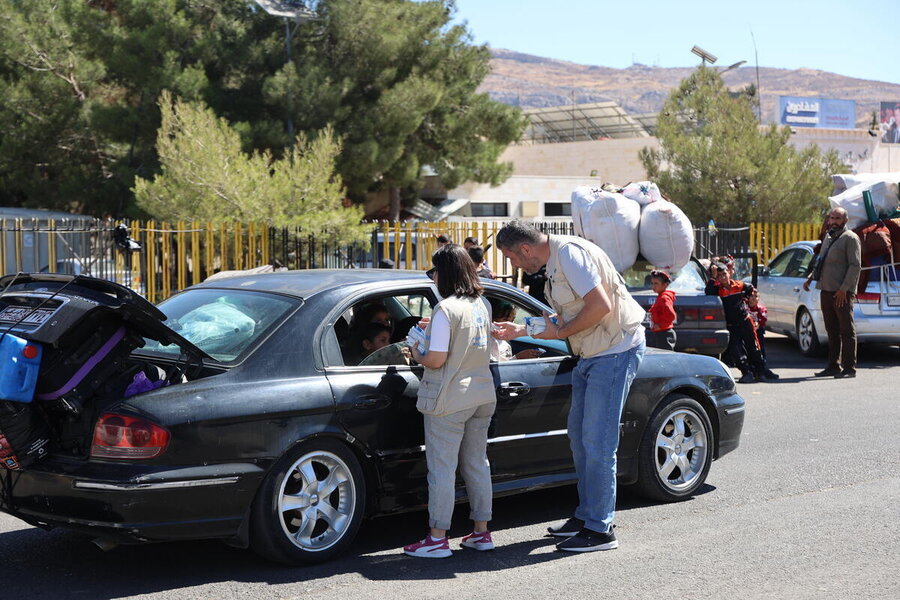
“People in need are hosting, receiving, preparing meals and providing shelter and transport for other people in need,” says Kenneth Crossley, World Food Programme (WFP) Syria Country Director, who recently visited Syrian villages hosting the newly displaced. “We’re seeing a crisis piled on top of a crisis, piled on top of a crisis.”
At the main Syrian border crossings with Lebanon, WFP and other humanitarian agencies are providing thousands of distraught people with assistance, including WFP date bars, hot meals and ready-to-eat rations. In just a few weeks, we have reached 170,000 displaced people with such support inside Syria.
Over the next six months, WFP plans to scale up to deliver food and cash assistance to some 400,000 people in Syria – both those displaced and host communities – if Lebanon’s conflict drags on. The support comes on top of our food assistance within Lebanon, which aims to reach up to 1 million people affected by the crisis.
“We need the world to step up and help the people arriving here from Lebanon,” WFP’s Crossley says. “But we also need to help the hosts – the people of Syria, who are already so food insecure.”
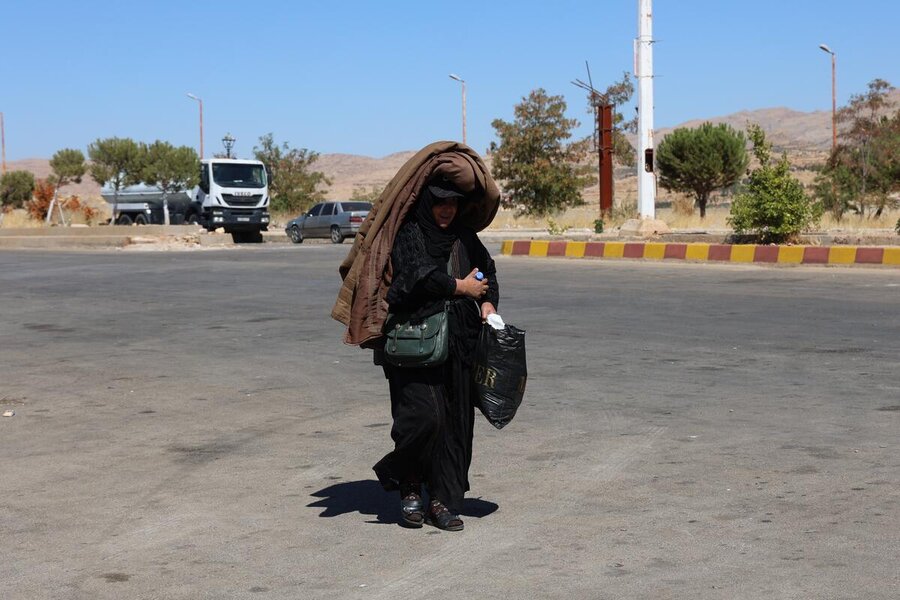
Along with the WFP food rations they received returning to Syria, Salma and her family previously received our support as refugees in Lebanon. The assistance was vital, as various health ailments over the years ultimately prevented them from working. Her 68-year-old husband is in fragile health; her father in law is paralysed. Salma herself suffers from rheumatoid arthritis.
“In Lebanon, our neighbours knew our struggles and supported us,” Salma says. In Syria, with so many vulnerable people, that’s no longer possible. More than a dozen family members are packed into just two rooms of her sister’s apartment.
Salma is grateful for the WFP and other humanitarian assistance she receives – but it’s stretched to cover so many mouths, it’s not enough. The family eats only bread in the morning, she says, and drinks dirty tap water.
“Violence in Syria, violence in Lebanon, where do we go?” Salma asks. “We must help each other survive this.”
Lucky to survive
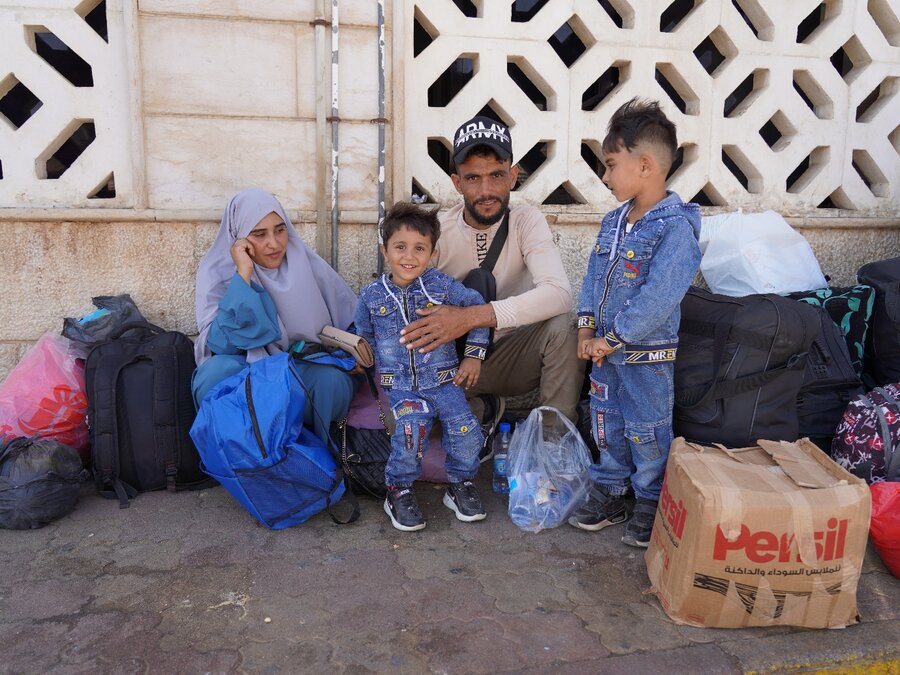
Outside Syria’s capital Damascus, Bushra and her family have also received WFP and other humanitarian assistance. They escaped their Lebanese home by car amid spiralling smoke from the airstrikes. There was no time to gather even key identity documents. With the road near the border cratered by an airstrike, the family crossed into Syria by foot.
“As soon as we left, our house was bombed,” Bushra says, “thank God, we were lucky to survive.”
For the young mother and her husband, the journey home has stirred traumatic memories. Five years ago, they left Syria’s war-torn Deir Ezzor governorate, seeking refuge in Lebanon. Bushra found work there as a housekeeper, and her husband as a stonemason. Like Salma and her family, the couple and their two young sons received humanitarian assistance as refugees.
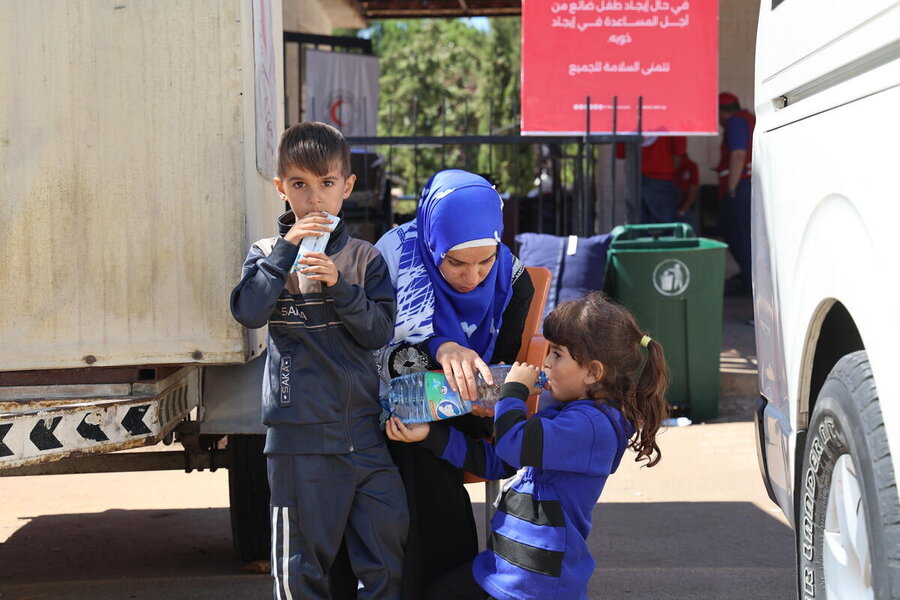
Neighbours back in Lebanon have sent her photos of their home. “It’s completely demolished,” Bushra says. “My heart broke when we left, but we had no other choice.”
Bushra and her family spoke to WFP from the Jdaydat Yabous border crossing near the Syrian capital, uncertain of where to go next. An uncle who once sheltered them in Syria no longer has room.
“We’re going through the same thing again,” says Bushra. “First in Syria, now in Lebanon. The feeling is indescribable. It’s overwhelming. My only comfort is that my children are safe.”
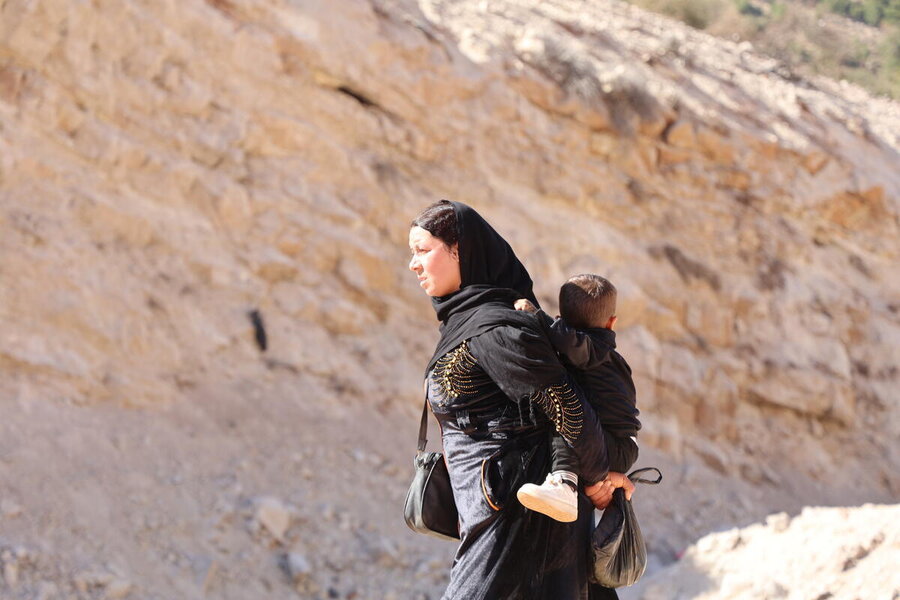
Her 5-year-old son, the oldest, keeps asking why they have fled, and whether they will return to Lebanon. He wonders whether his friends are still alive.
“He says, ‘mom, I want to go to school,'” Bushra says, tears welling up in her eyes. “He asks when the school bus will come for him – and asks me to get him a backpack.”
